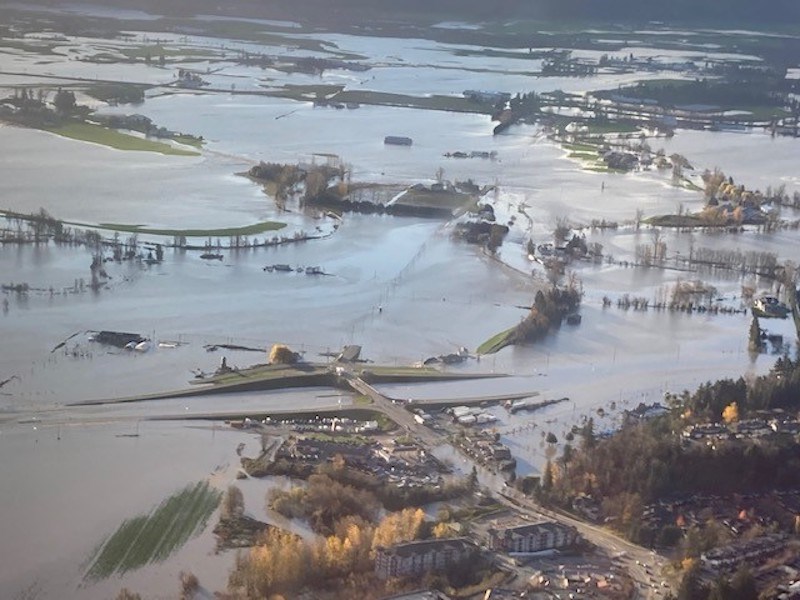Environment Canada has released its top ten weather stories in Canada for 2021 and B.C.'s record-breaking heat wave topped the list.
Canadians grappled with unprecedented extreme weather over the past year, in the form of "devastating flooding, widespread wildfires, relentless heat waves, and powerful tornadoes," explains a news release.
The national weather forecaster points out that scientists have made a "clear link" between these severe weather events and climate change. As a result, the government has made commitments to reducing the country's greenhouse gas emissions to prevent further impacts of climate change.
The 26th annual edition of the Top 10 Weather Stories in Canada highlights that B.C. was particularly affected by extreme weather. The province's record heat under the dome in June has been described as the "deadliest weather event in Canadian history."
On June 29, a record-breaking high temperature of 49.6°C was recorded in Lytton, and only one day later, "90 per cent of the village was lost to wildfires, resulting in two fatalities and displacing 1200 residents."
The devastating floods that followed an unprecedented storm pattern in November came second on the annual list. Environment Canada's report authors note that the floods were the sum of seven atmospheric rivers and three weather bombs. The flooding and landslides led to the loss of at least six lives and thousands of evacuations, as well as the destruction of critical infrastructure and property damage. The repairs are expected to cost billions to restore.
The "early, active, and unrelenting" wildfire season came in the fourth spot. A provincial state of emergency was declared on July 21 and wasn't lifted until Sept. 14.
The wildfire service report says drought-like conditions over southern B.C., coupled with record-breaking extreme heat and severe lightning storms, helped spark as many as 40 new fires every day in July.
But B.C. wasn't the only province that experienced extreme weather in 2021. Canada had a series of powerful tornadoes this year "that ranked as a 2 on the Enhanced Fujita (EF) scale, characterized by wind speeds of between 180 and 220 km/h," explains the release.
Some of the most notable tornadoes include the deadly twister in Quebec in June, and the series of EF2s on July 15 in Ontario, including the devastating Barrie tornado.
The government has committed more than $1.9 billion through the Disaster Mitigation and Adaptation Fund, for 69 large-scale infrastructure projects that will help protect communities across the country from the threats of climate change, including coastal erosion.
Canada’s Top 10 Weather Stories of 2021 are ranked from 1 to 10, according to a number of factors that include the impact they had on Canada and Canadians, the extent of the affected area, the associated economic impacts, and the longevity as a top news story.
Top 10 Weather Stories of 2021
- Record Heat Under the Dome
- British Columbia’s Flood of Floods
- Canada Dry Coast to Coast
- Wildfire Season – early, active and unrelenting
- Canada rides out four heat waves
- Year of the EF2 Tornado
- Dreaded Arctic Blast Freezes Canada in February
- Another hailer-flooder in Calgary
- Hurricane Larry belonged to Newfoundland
- January Prairie Clipper
With files from the Canadian Press.




